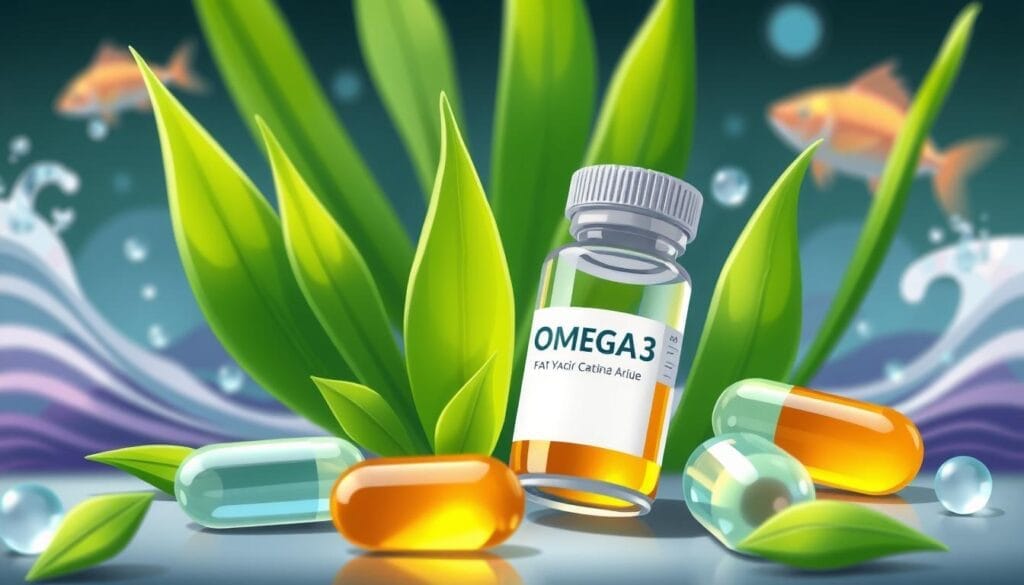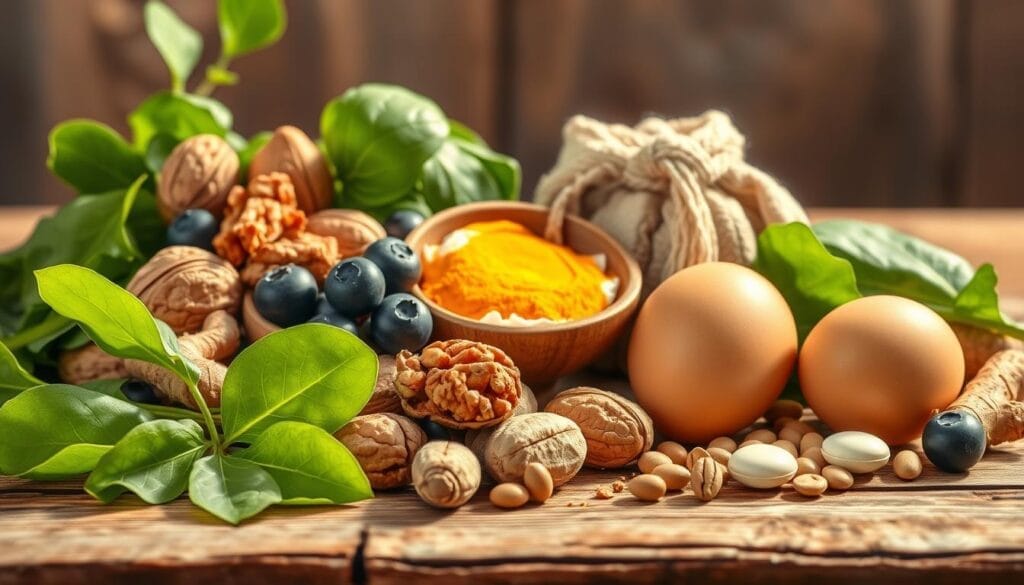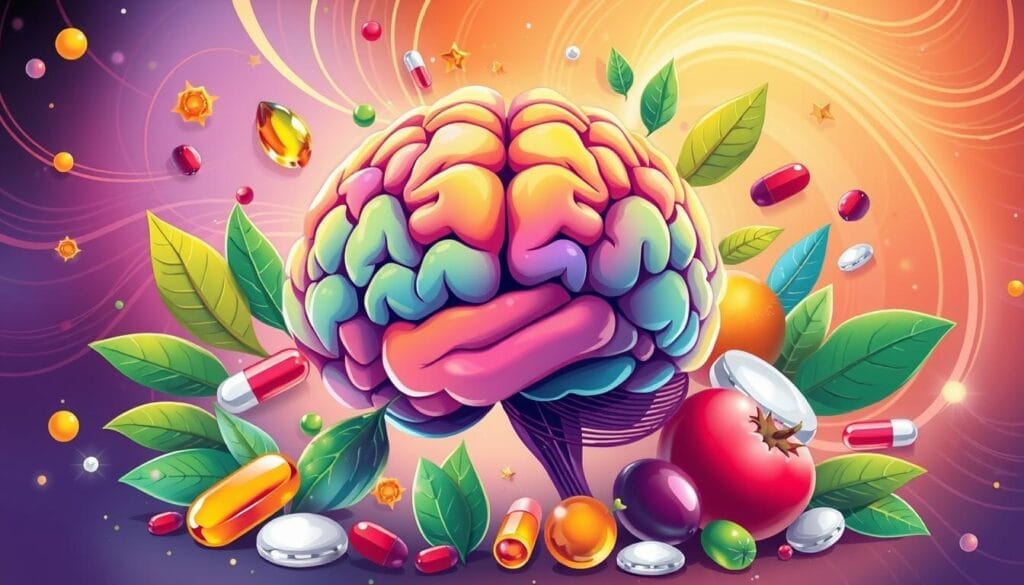Have you ever found yourself forgetting names, losing focus mid-sentence, or struggling to stay sharp during important meetings or exams? You’re not alone. With modern life pulling our attention in a hundred directions, it’s no surprise many people turn to supplements to boost brain function.
From stressed-out students to overworked professionals and aging adults worried about memory loss—everyone wants better mental clarity. But which supplements actually work? Which ones are safe? And how long do they take to show results?
In this blog, we’ll break down the most talked-about supplements to boost brain function, what science says about them, and who should consider using them.
Table of Contents
ToggleWhy Do People Seek Supplements to Boost Brain Function?
In today’s fast-paced world, brain fog, poor concentration, and memory lapses have become common complaints. That’s why many turn to supplements to boost brain function.
What causes brain fog, memory loss, or lack of concentration?
Poor brain function can be caused by multiple things. Let’s look at the common culprits:
- Lack of sleep: Your brain doesn’t reset properly without enough rest.
- Poor nutrition: Deficiencies in essential vitamins affect brain signals.
- Chronic stress: Long-term stress damages brain cells.
- Toxins: Smoking, alcohol, and pollution can lower brain performance.
- Medical conditions: Thyroid problems, depression, and ADHD affect cognition.
In short, poor habits and hidden medical issues often lead to reduced mental performance.
How does modern lifestyle impact cognitive health?
We’re living in an always-on digital world. This lifestyle strains our minds:
- Screen overload: Constant screen time leads to mental fatigue.
- Multitasking: Dividing attention weakens memory and focus.
- Sedentary habits: Low movement affects blood flow to the brain.
According to WHO, over 55 million people globally suffer from dementia and this number is expected to rise to 139 million by 2050.
A 2023 survey by the American Psychological Association showed that 32% of Americans report trouble focusing due to stress.
What Are Brain Supplements?
Brain supplements, also known as nootropics or cognitive enhancers, help support brain health. They focus on memory, focus, and mental clarity. These supplements aim to fill nutritional gaps and boost brain performance.
Brain supplements contain natural and synthetic compounds like vitamins and herbs. They are made to improve memory and focus. But, it’s key to talk to a healthcare provider before using them.
Overview of Common Ingredients
Many natural brain enhancers and supplements have key ingredients. These include omega-3 fatty acids, antioxidants, and B vitamins.
Omega-3 Fatty Acids
Omega-3 fatty acids, like DHA and EPA, are vital for brain health. They may boost brain function, especially in older people. Eating fish, which is full of omega-3s, is good for your brain.
Antioxidants
Antioxidants, like vitamin E, protect brain cells. Vitamin E might slow down brain decline in people with dementia. Curcumin in turmeric also helps with memory in those with mild forgetfulness.
B Vitamins
B vitamins, like B6, B12, and folate (B9), are good for the brain. Many older adults lack vitamin B12. Taking supplements might help their brain function. But, the benefits of B vitamins are not always clear.
Other ingredients in brain supplements include CDP-choline and herbs like ginkgo biloba and ginseng. They may help with memory in older adults. But, studies show mixed results on their brain benefits.
Even though some supplements claim to improve brain health, research is still out. It’s wise to talk to a doctor before taking them. This way, you can make sure they’re safe for you.
Popular Supplements for Cognitive Enhancement
Many people look for ways to improve their brain function and thinking skills. Ginkgo Biloba, Bacopa Monnieri, and Rhodiola Rosea are among the most popular choices.
Ginkgo Biloba
Ginkgo Biloba is a well-known herb in traditional Chinese medicine. It’s studied for its possible benefits on memory and thinking. But, big studies like the Ginkgo Evaluation Memory study found no clear proof it helps prevent or slow dementia.
Bacopa Monnieri
Bacopa Monnieri is another herb that shows promise. It might help with learning, memory, and processing information. This makes it a favorite among those looking to boost their brain function.
Rhodiola Rosea
Rhodiola Rosea is an adaptogenic herb that fights stress and fatigue. It might help improve thinking and focus when you’re stressed. Research on Rhodiola Rosea is still going on, but some studies suggest it can make you feel more alert.
Remember, always talk to a doctor before taking any supplements. How well they work and if they’re safe can vary. Everyone’s body is different.
Which natural supplements are proven to work?
Here’s a table showing effective natural brain function boosters:
| Supplement | Benefit | Natural Source |
|---|---|---|
| Omega-3 (DHA/EPA) | Improves memory, brain structure | Fatty fish (salmon, tuna) |
| Ginkgo Biloba | Enhances blood flow, memory | Ginkgo tree leaves |
| Bacopa Monnieri | Boosts memory, reduces anxiety | Ayurvedic herb |
| Rhodiola Rosea | Fights stress and mental fatigue | Arctic plant root |
| Panax Ginseng | Improves thinking and reaction time | Ginseng root |
| L-theanine | Promotes calm focus | Green tea |
| Lion’s Mane Mushroom | Encourages nerve growth and clarity | Edible mushroom |
| Phosphatidylserine | Supports memory and cognitive speed | Soy, sunflower lecithin |
Each of these is among the best brain supplements backed by research.
Benefits of Omega-3 Fatty Acids
Omega-3 fatty acids, like DHA and EPA, are key for brain health. They help with memory and brain growth. These Brain Boosters are very important.
Impact on Memory
Research shows omega-3s in red blood cells link to better brain health. Even in their 40s and 50s, people with more omega-3s do better. A big study found more omega-3s mean bigger hippocampal volumes.
This means better learning and memory. Also, more omega-3s help with abstract thinking.
Role in Brain Development
Omega-3s are crucial for brain growth, especially in young ones. People with the APOE4 gene can also benefit from omega-3s. It helps protect against brain diseases.
The Mediterranean diet, full of omega-3s, may lower dementia risk. But, omega-3 supplements are not as clear-cut. Still, not having enough omega-3s, like EPA and DHA, harms brain health.

How omega-3s protect the brain is still a mystery. But, they might stabilize neurons and fight inflammation. This research shows omega-3s are vital for brain health, especially for those with APOE4.
The Power of Antioxidants
Antioxidants are key in protecting the brain from free radicals. These unstable molecules can harm brain cells. Antioxidants fight off free radicals, keeping the brain healthy and sharp.
How They Protect the Brain
The brain is very sensitive to damage because it works hard and has few defenses. Antioxidants find and stop free radicals. This keeps brain cells safe and helps the brain work well.
Key Antioxidants for Brain Health
- Vitamin E: A strong antioxidant that guards brain cell membranes and may slow down brain decline in people with dementia.
- Curcumin: The main part of turmeric, curcumin has shown to help memory in those with mild brain problems.
- Omega-3 Fatty Acids: These healthy fats, found in fatty fish, improve memory and brain function.
- Polyphenols: Found in fruits, veggies, and drinks like coffee and green tea, they protect the brain.
Eating foods rich in antioxidants and taking supplements can help your brain. This can improve your Focus Enhancers and Mental Clarity Pills.
The Role of B Vitamins in Brain Function
B-vitamins are key for brain health. They help with energy and DNA making. But, not all B vitamins get the same attention, and missing them can hurt our thinking.
Importance of Vitamin B12
Vitamin B12 is very important for our brains. It helps with energy and nerve work. Many people, especially older ones, don’t get enough B12. This can lead to memory loss and even dementia.
Having enough B12 can help keep our brains sharp as we age.
Read: Vitamin B12 Injections: Benefits and Potential Risks
Folate and Cognitive Performance
Folate, or vitamin B9, is vital for brain health. It helps prevent birth defects and supports the brain. Studies show it might help with thinking skills, especially in older people.
Getting enough folate, through food or supplements, is good for our brains. This is true for all B vitamins. Using Natural Brain Enhancers and Brain Health Supplements can boost brain function.

Adaptogens and Their Effects
Adaptogens are special plants that help our bodies deal with stress. They keep us balanced. People are interested in them because they might make our brains work better.
Studies are still coming in, but some look promising. They show adaptogens might help our bodies handle stress better.
What Are Adaptogens?
The word “adaptogen” was first used in 1940. It means plants that help our bodies fight stress. Adaptogens work by making our bodies less stressed and tired.
Popular Brain-Boosting Adaptogens
- Rhodiola Rosea: This arctic root has been shown to reduce fatigue, depression, and pain, potentially enhancing cognitive function.
- Ginseng: Although some studies suggest ginseng might improve mental skills, a review of high-quality research found no convincing evidence for its effectiveness in protecting brain health.
- Ashwagandha: This ancient Ayurvedic herb has been studied for its ability to reduce anxiety and depression, which can indirectly benefit cognitive performance.
- Schisandra: Known for improving concentration, coordination, and endurance, schisandra is another adaptogen with potential brain-boosting effects.
Adaptogens might help our brains by managing stress. This can make our brains work better. Always talk to a doctor before trying adaptogens.
Nootropics: An Overview
Nootropics are known as “Cognitive Enhancers” or “Brain Boosters.” They help improve memory, focus, and learning. These can be natural, synthetic, or supplements. Caffeine, L-theanine from green tea, and racetams are popular nootropics.
Definition and Function
Nootropics target the brain in different ways. They can boost brain function, protect against aging, and help with some brain diseases. But, more research is needed to know their long-term effects.
Examples of Effective Nootropics
- Caffeine: A well-known stimulant that can improve alertness, focus, and mental performance.
- L-Theanine: An amino acid found in green tea that, when combined with caffeine, has shown promising results in enhancing cognitive function.
- Racetams: A class of synthetic compounds, such as piracetam, that may enhance memory, learning, and overall cognitive abilities, though more research is needed.
- Creatine: A naturally occurring compound that can help support brain energy metabolism and potentially improve certain cognitive functions.
These nootropics show promise, but more research is needed. Always talk to a healthcare professional before using nootropic supplements or medications.

Who Should Consider Taking Brain Supplements?
Some people benefit more than others from supplements to boost brain function. Let’s look at specific groups.
Are they effective for students or professionals under stress?
Yes. Focus supplements help students during exams and professionals under deadlines:
- Improve memory retention
- Increase attention span
- Reduce stress-related forgetfulness
These supplements for cognitive performance are often used during high-stress seasons.
Can older adults use them to fight cognitive decline or dementia?
Yes. Older adults often face memory loss or slow thinking. These supplements help:
- Slow down memory decline
- Improve verbal skills
- Increase mental alertness
They play a key role in cognitive decline prevention.
Should people with ADHD, anxiety, or depression consider brain supplements?
People with mental health issues may see benefits, but they should consult their doctor:
- Some ingredients support focus (helpful for ADHD)
- Others calm anxiety or boost mood (like Rhodiola or L-theanine)
A short consultation with Dr. Chandril Chugh is advised before starting.
How to Choose the Right Supplement to Boost Your Brain Function?
Choosing the right mental performance pills can be confusing. Here’s what to look for:
What should you look for on the label (purity, certification, dosage)?
Check for:
- Purity: Avoid additives and fillers
- Certifications: Look for GMP or third-party tested
- Proper dosage: Follow evidence-based guidelines
Are branded nootropics better than generic ones?
Branded options may:
- Offer better quality control
- Use patented or well-researched formulas
But some generics work well too. Look for reviews and certifications.
Should you go for single-ingredient or multi-ingredient formulas?
- Single-ingredient: Easier to track effects
- Multi-ingredient: Offer convenience but harder to isolate impact
Pick what fits your goals and tolerance level.
Research and Studies on Brain Supplements
Recent studies on brain supplements have shown mixed results. A UCLA study found that curcumin improved memory and reduced brain protein buildup in 40 people. But, large studies on omega-3 haven’t shown big benefits for most people.
However, some studies suggest benefits for certain groups, like those with the APOE4 gene. More research is needed to understand Memory Supplements and Focus Enhancers.
Latest Findings
The dietary supplements market grew to 132.8 billion USD in 2016. It’s expected to reach 220.3 billion USD by 2022. About 70% of an Australian university’s students use dietary supplements.
Even more, 76% of men and 87% of women in the military use supplements for health. A review found most studies on supplements in healthy young adults were low quality. Yet, some supplements like omega-3 and caffeine have shown benefits.
Implications for Daily Use
The brain health supplement market is growing fast. But, there are issues with labels and actual content. About 22% of users have had bad reactions.
Manufacturers must report accurate ingredients. But, more rules are needed to ensure Memory Supplements and Focus Enhancers are safe and work.
Even with mixed research, brain supplements might help some people. It’s important to be careful and talk to doctors before using them.
Potential Risks and Side Effects
Natural brain enhancers and mental clarity pills can help your mind. But, they might also have risks and side effects. It’s important to know these before you start using them.
Safe Dosage Guidelines
Too much vitamin E can be bad for you. Some supplements can also mess with your medicines. For example, ginkgo biloba might not work well with blood thinners.
Always talk to a doctor before taking any supplements. This is especially true if you have health problems or are on medicines.
Interactions with Medications
- St. John’s wort can make heart medicines and antidepressants work less well.
- Vitamin K can mess with warfarin, a blood thinner.
- Supplements like omega-3 fatty acids and B vitamins can interact with medicines too.

Always check with a doctor before starting any supplements. This is key if you have health issues or take medicines. Knowing the risks helps you make smart choices for your health.
Ready to Support Your Brain Health the Smart Way?
Improving your brain function isn’t about shortcuts. It’s about smart choices. From supplements to boost brain function to daily habits, the goal is to support your mind consistently.
If you feel confused, overwhelmed, or unsure where to begin, talk to someone who can guide you.
Book a consultation with Dr. Chandril Chugh, a US-trained, board-certified neurologist who has helped thousands with migraines, stroke recovery, ADHD, memory loss, and more.
Stay sharp, stay healthy.
FAQ
What are brain supplements and how can they benefit cognitive function?
Brain supplements, also known as nootropics or cognitive enhancers, support brain health. They help with memory, focus, and mental clarity. These supplements aim to fill nutritional gaps and possibly improve brain performance. But, their effectiveness often lacks strong scientific evidence.
What are some common ingredients found in brain supplements?
Brain supplements often include omega-3 fatty acids and antioxidants like vitamin E. They also have B vitamins, curcumin, CDP-choline, and herbs like ginkgo biloba and ginseng. These ingredients support brain development, protect brain cells, and may improve cognitive functions.
What are some popular brain-boosting supplements and their potential benefits?
Ginkgo biloba may protect memory. Bacopa monnieri could improve memory and cognitive function. Rhodiola rosea is an adaptogenic herb that may help fight stress and fatigue. It could support cognitive performance under stress.
How do omega-3 fatty acids, particularly DHA and EPA, benefit brain health?
Omega-3 fatty acids are key for brain health. They support brain development in infants and may help older adults. Lower omega-3 levels are linked to faster brain aging. But, the benefits of omega-3 supplements are unclear, with mixed study results.
What are the benefits of antioxidants and B vitamins for brain health?
Antioxidants like vitamin E protect brain cells and may slow cognitive decline in dementia. B vitamins, including B6, B12, and B9 (folate), are vital for brain health. Vitamin B12 deficiencies are common in older adults and may lead to dementia and mood issues.
How do adaptogens and “smart drugs” (nootropics) support brain function?
Adaptogens, like rhodiola rosea and ginseng, help manage stress. This can indirectly improve cognitive function. Nootropics, or “smart drugs,” aim to enhance cognitive function. They include natural compounds, synthetic drugs, and dietary supplements like caffeine and L-theanine.
What does the latest research say about the effectiveness of brain supplements?
Recent research shows mixed results on brain supplements. Some studies suggest benefits, like improved memory with curcumin. But, large-scale studies on omega-3 supplements have not shown clear cognitive benefits. More research is needed to understand these supplements fully.
What are the potential risks and side effects of taking brain supplements?
Brain supplements can be risky, especially in high doses or with other supplements or medications. Taking too much of certain vitamins, like vitamin E, can be harmful. Many supplements can also interact with medications, possibly reducing their effectiveness or increasing side effects. Always consult a healthcare provider before starting any supplement regimen.
About The Author

Medically reviewed by Dr. Chandril Chugh, MD, DM (Neurology)
Board-Certified Neurologist
Dr. Chandril Chugh is a U.S.-trained, board-certified neurologist with expertise in diagnosing and managing neurological disorders, including migraines, epilepsy, Parkinson’s disease, and movement disorders. His clinical focus includes evidence-based neurological care and patient education.
All content is reviewed for medical accuracy and aligned with current neurological guidelines.




